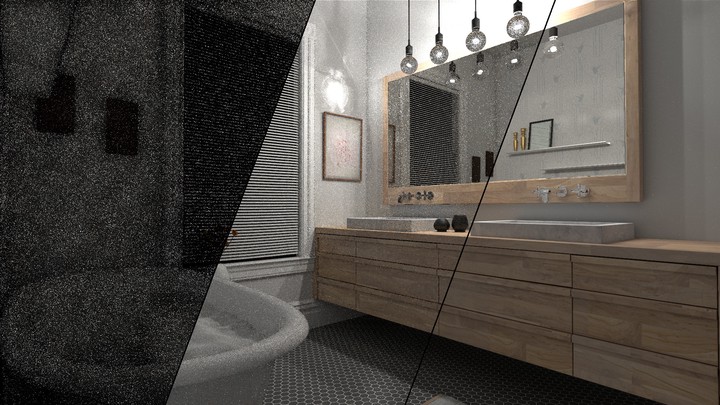ReSTIR BDPT: Bidirectional ReSTIR Path Tracing with Caustics

Abstract
Recent spatiotemporal resampling algorithms (ReSTIR) accelerate real-time path tracing by reusing samples between pixels and frames. However, existing methods are limited by the sampling quality of path tracing, making them inefficient for scenes with caustics and hard-to-reach lights. We develop a ReSTIR variant incorporating bidirectional path tracing that significantly improves the sampling quality in these scenes.
Combining bidirectional path tracing and ReSTIR introduces multiple challenges: the generalized resampled importance sampling (GRIS) behind ReSTIR is, by default, not aware of how a path was sampled, which complicates reuse of bidirectional paths. Light tracing is also challenging since light subpaths can contribute to all pixels. To address these challenges, we apply GRIS in a sampling technique-aware extended path space, design a bidirectional hybrid shift mapping, and introduce caustics reservoirs that can accumulate caustics across frames. Our method takes around 50ms per frame across our test scenes, and achieves significantly lower error compared to prior unidirectional ReSTIR variants running in equal time.